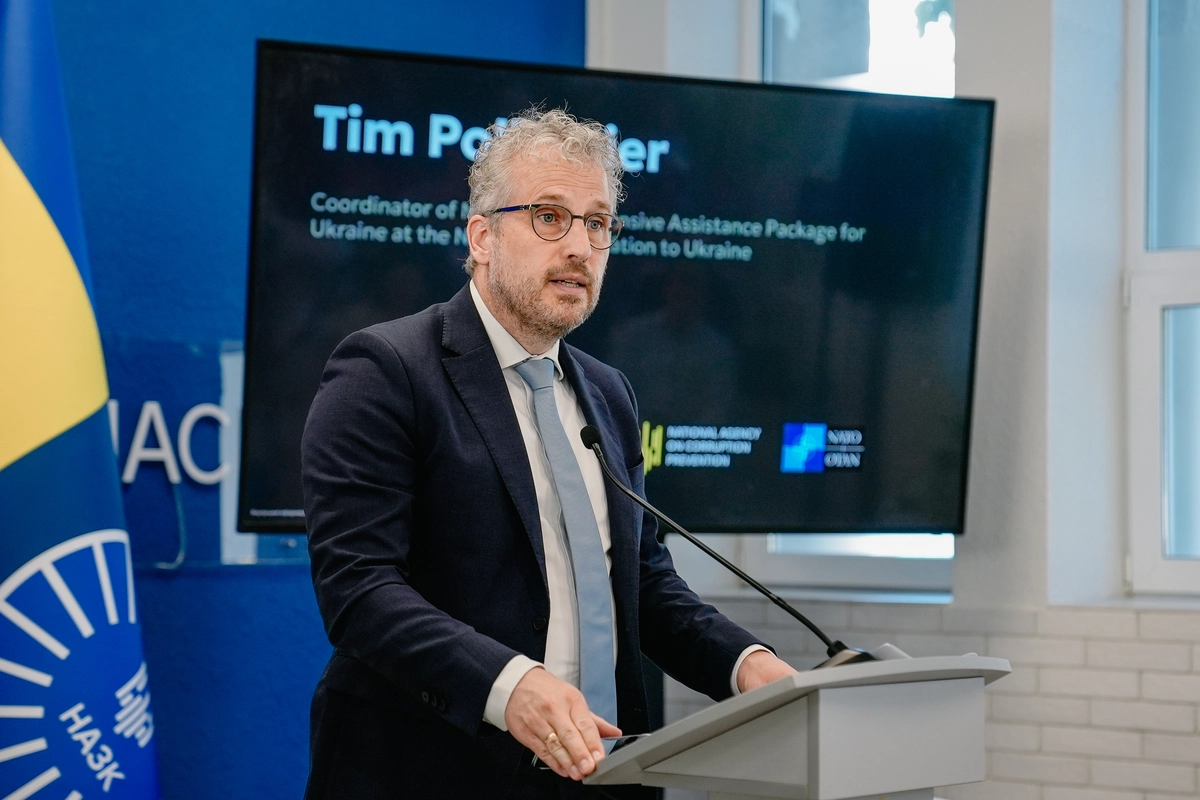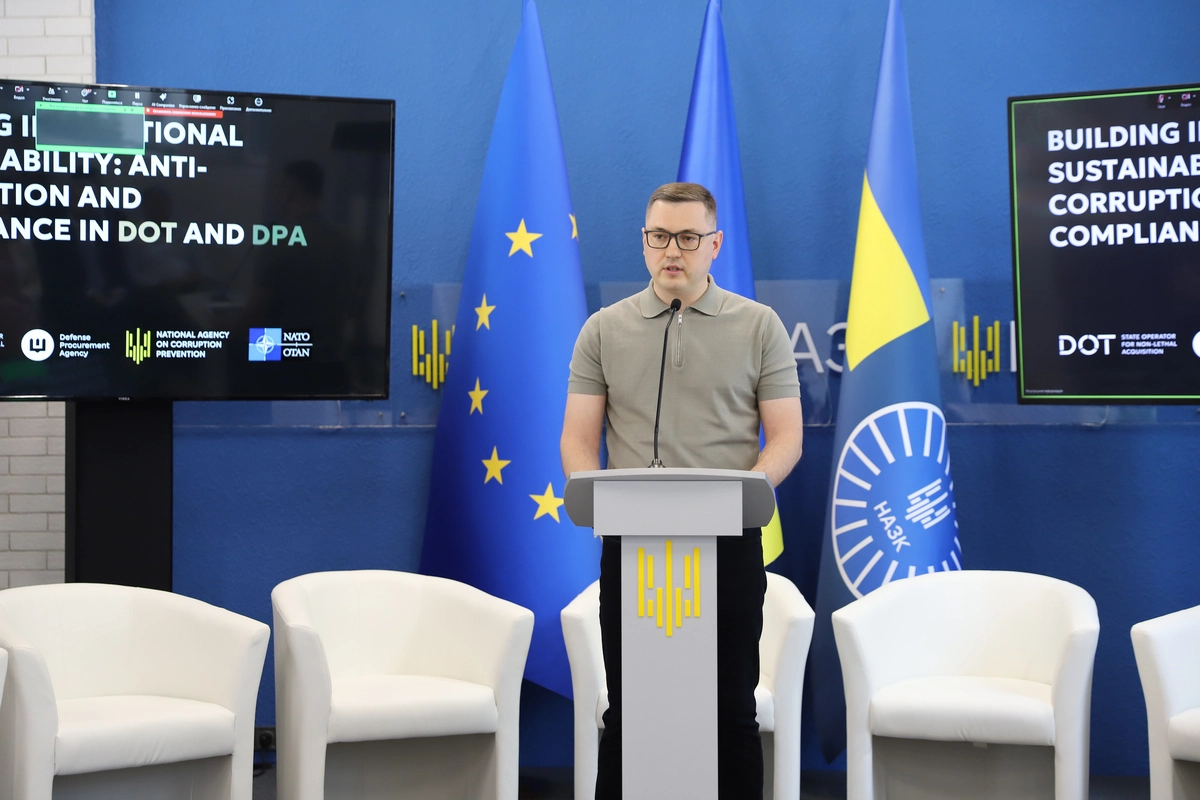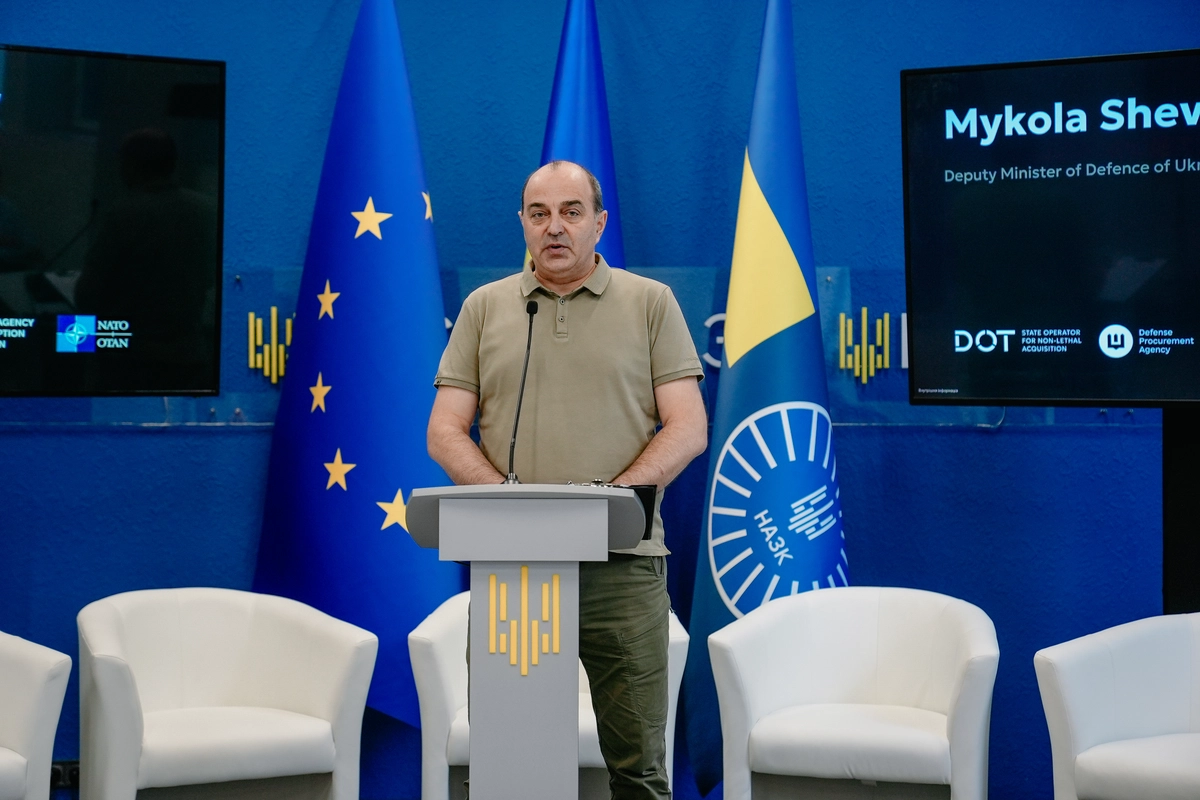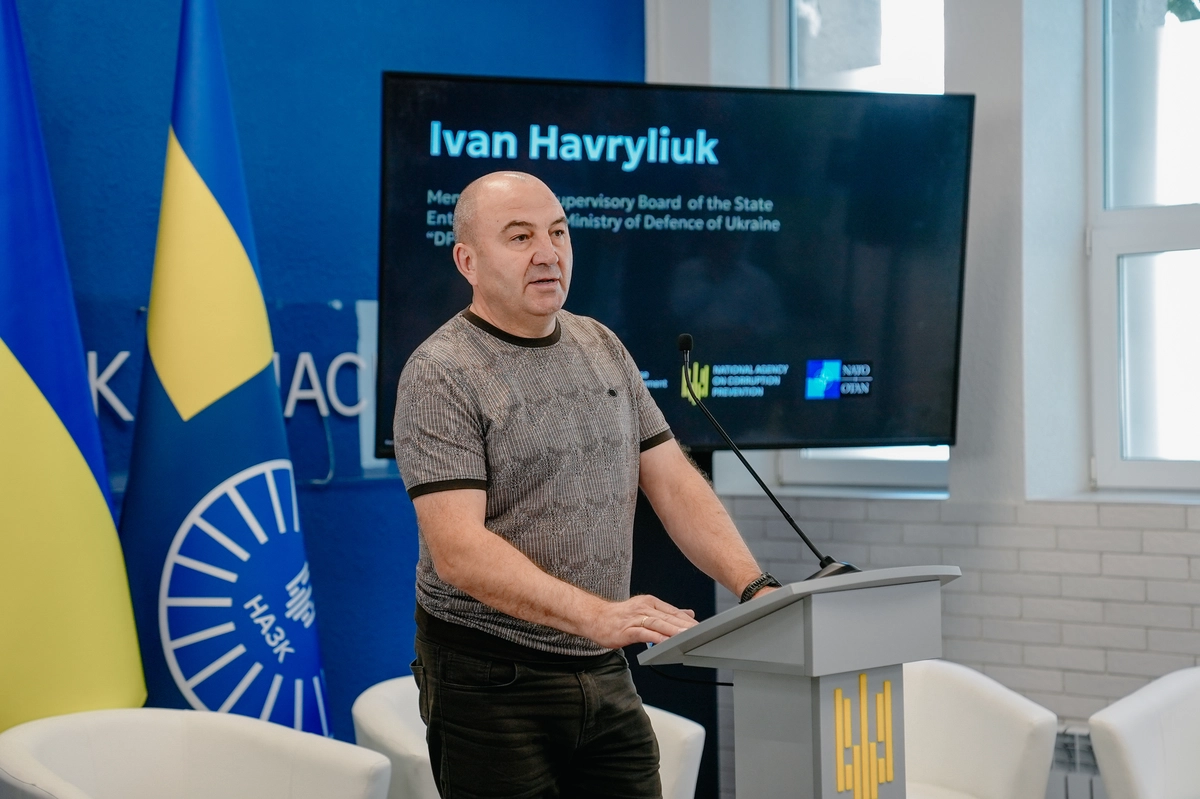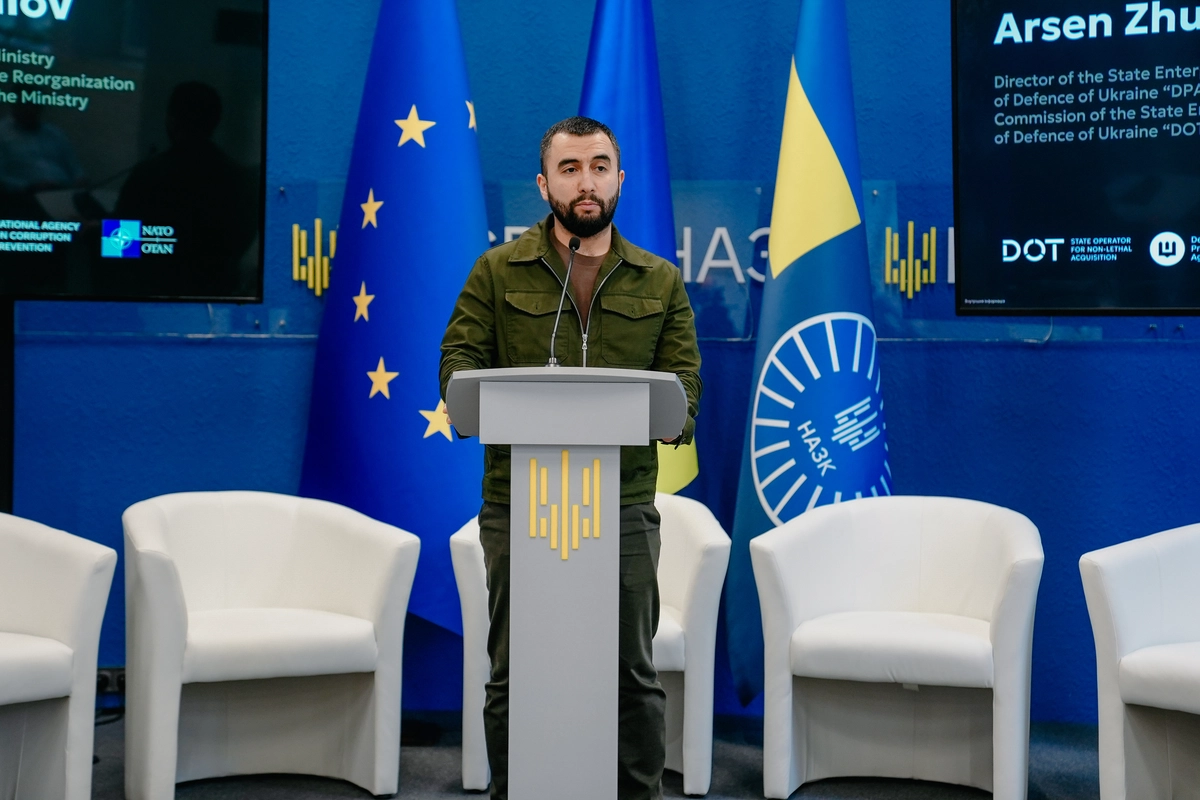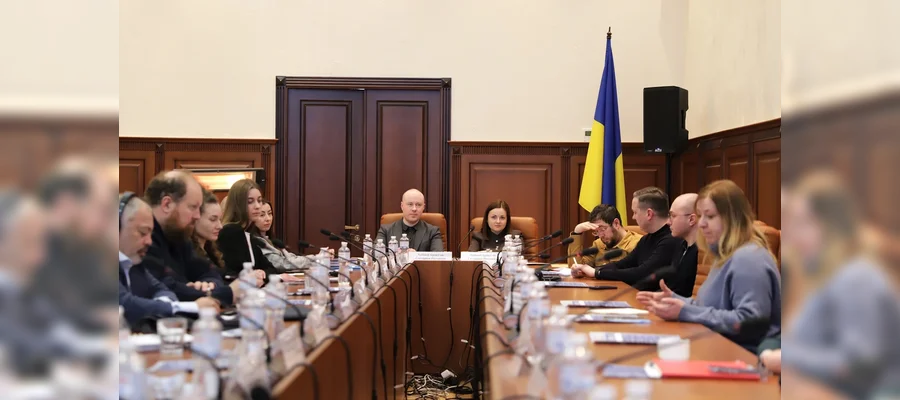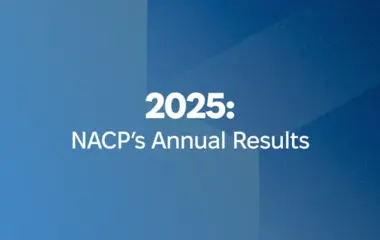The National Agency for Corruption Prevention (NACP) together with other state bodies and institutions continue to work on the implementation of NATO international standards for preventing corruption in the security and defence sector.
Together with state-owned enterprises of the Ministry of Defence of Ukraine, the Defence Procurement Agency and the State Logistics Operator, with the support of the NATO Representation in Ukraine, presented progress in implementing transparency, integrity and accountability mechanisms in the activities of the Defence Procurement Agency and the State Logistics Operator in accordance with the recommendations of the Strategic Review of Ukraine's Defence Procurement System (Strategic Review). It should be recalled that the NACP, together with representatives of other state bodies, the Verkhovna Rada of Ukraine and NATO experts, actively participated in the development of these recommendations.
NACP Head Viktor Pavlushchyk emphasised that defence procurement is one of the five main problems in the defence sector identified in the Anti-Corruption Strategy for 2021-2025, and that systematic and comprehensive reform of this sector is necessary to address them.
He noted that the implementation of recommendations 13 and 15 of the Strategic Review (‘Building trust in agencies’ and ‘Developing a robust compliance programme’) will strengthen accountability, the effectiveness and efficiency of defence procurement, preventing duplication of functions in the procurement of defence products and clearly delineating roles and responsibilities among all stakeholders at all levels. “During the legal regime of martial law, transparency and accountability can be achieved, in particular, by strengthening the internal control system, including oversight mechanisms: supervisory boards, the introduction of digital solutions and the standardisation of defence procurement practices. In peacetime, it is also important to adapt the regulatory framework to enhance accountability and good governance, resolve legal uncertainties and strengthen procurement oversight, including parliamentary and public oversight," said Viktor Pavlushchyk. He recalled that NACP acts not only as a coordinator but also directly participates in the implementation of the Strategic Review recommendations, in particular by analysing corruption risks in the defence sector and conducting anti-corruption expertise as effective mechanisms for preventing corruption.
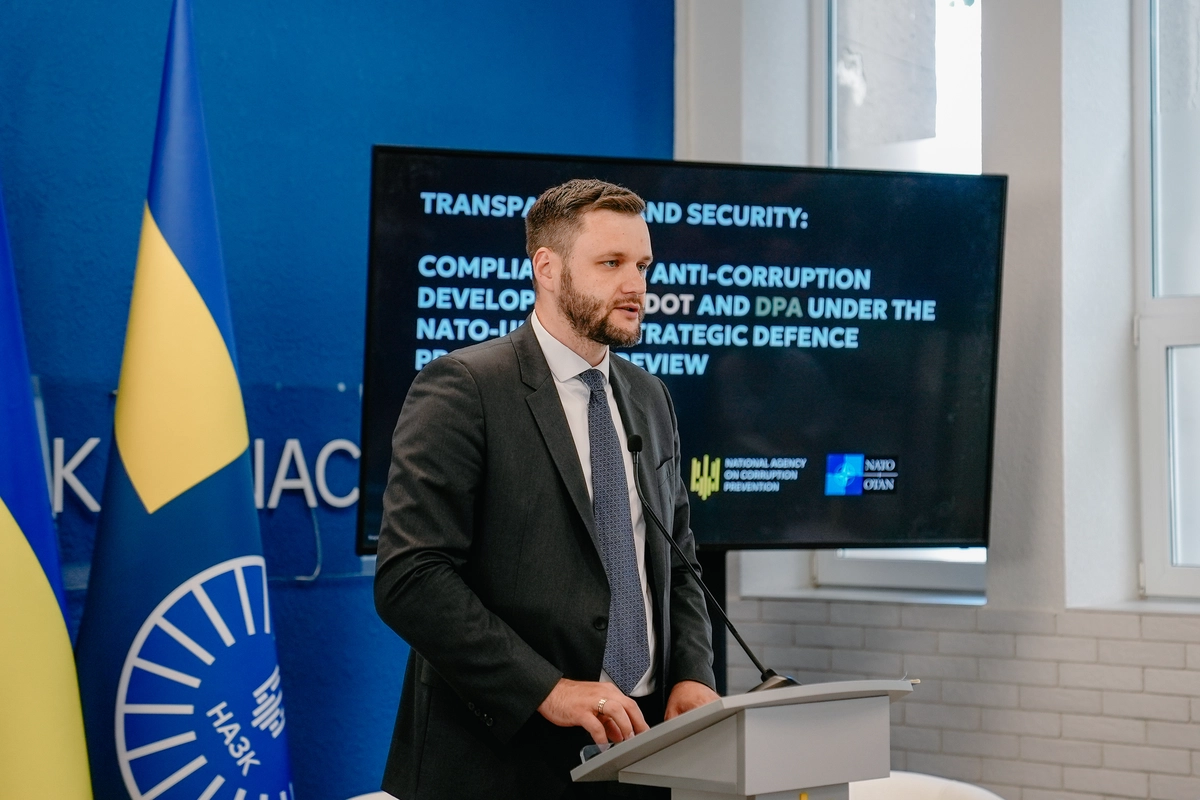
Deputy Director for Risk Management and Compliance at the Defence Procurement Agency, Head of the Reorganisation Commission State Logistics Operator Dmytro Bigunets presented compliance tools and anti-corruption practices in accordance with the recommendations of the Strategic Review, using the example of the State Logistics Operator's function. State Logistics Operator is an agency that purchases non-lethal goods, so, according to Dmytro Bigunets, the basis for the implementation of anti-corruption tools is the use of public procurement.
State Logistics Operator's compliance architecture is based on a three-line defence model, which consists of the level of direct executors responsible for identifying and managing risks in operational activities; the level of coordination and policy development, compliance monitoring, and consulting; and the level of internal audit, which is an independent assessment of the effectiveness of the control and risk management system. These units report to the State Logistics Operator Supervisory Board. ‘With the support of the EU Anti-Corruption Initiative, we have already conducted a preliminary audit. We are waiting for specialists to be contracted to conduct a certification audit and obtain the relevant certificate. The audit will be carried out by international auditors, including from Canada, and will have international status,’ said Dmytro Bigunets.
He also spoke about the tools for controlling and preventing abuse in defence procurement. In particular, pre-contract audits of participants have been introduced. As of June 2025, restrictive measures have been applied to seven suppliers.
The reasons included violations of contract deadlines, poor quality or counterfeit products, failure to fulfil obligations, and violations of anti-corruption requirements. In addition, the contracts provide for control points that allow monitoring of the fulfilment of obligations and timely response to risks of supply disruptions.
Speaking about anti-corruption tools at the Defence Procurement Agency, Dmytro Bigunets emphasised the importance of taking into account the specific nature of the Defence Procurement Agency activities, as some purchases are made with regard to the heightened sensitivity or confidentiality of information. The Defence Procurement Agency has a Supervisory Board. A ‘second line of defence’ has been organised, which includes compliance and centralised reporting to the deputy director for risk management, a clear division of functions between departments to avoid duplication, etc. In 2025, Defence Procurement Agency created a ‘single window’ for potential suppliers, which simplifies access to information; unified the Agency's model of interaction with the market; and introduced a cross-cutting compliance function at all stages of procurement.
As part of the implementation of Recommendation 10, ‘Development of a joint register of suppliers,’ the Strategic Review created a register of verified suppliers, which currently includes 1,247 companies. By the end of the year, it is planned to implement a programmatic approach to risk management, update the conflict of interest resolution procedure, and develop criteria for the formation of a ‘black list’ of suppliers.
According to Tim Pollmeier, Project Coordinator for NATO's Comprehensive Assistance Package for Ukraine at the NATO Office in Ukraine, NACP plays an important role in coordinating joint projects with the Alliance, in particular regarding the implementation of the provisions of the Roadmap for Ukraine's interoperability with NATO, as well as the implementation of recommendations developed within the Strategic Review. "These initiatives represent a comprehensive transformation of the defence procurement architecture, aimed at addressing systemic problems ranging from inefficient procedures to deeply rooted corruption risks. The implementation of recommendations based on NATO principles - accountability, transparency and interoperability - is fully in line with Ukraine's strategic course towards Euro-Atlantic integration," Tim Pollmeier said. He emphasised that these developments are the result of partnership between Ukraine and NATO, which is strengthening the country's institutional capacity.
The participants discussed the main challenges arising during the implementation of the Strategic Review recommendations, the improvement of compliance functions of state-owned enterprises, the need to distribute roles among participants in the procurement process, and the improvement of inter-agency coordination. The discussion provided an opportunity to develop a comprehensive vision of the challenges and next steps, taking into account the interests of all key actors in the defence sector. The developments made during the event will be another step towards the consistent and practical implementation of NATO standards in the field of defence procurement.
The event was also attended by Deputy Minister of Defence of Ukraine Mykola Shevtsov, Head of the Integrity Policy Development Department in the Security and Defence Sector of the NACP Yaroslav Liubchenko, Director of the Defence Procurement Agency Arsen Zhumadilov, Chairmen of the Supervisory Boards of the Defence Procurement Agency and State Logistics Operator Stanislav Haider and Nadiya Bigun, member of the Supervisory Board of Defence Procurement Agency Ivan Havrilyuk, Director of the Department for Countering and Preventing Corruption of the Ministry of Defence Serhii Stepanian, Director of the Procurement Department of the Ministry of Defence Oleksandr Osadchy, public organisations and the media.
For reference. The Strategic Review is one of the flagship projects within NATO's Comprehensive Assistance Package for Ukraine, which was developed by Ukrainian experts in cooperation with experts from NATO member states. The document was approved at the Washington Summit in July 2024.
The aim of the Strategic Review is to bring Ukraine's defence procurement in line with best Euro-Atlantic practices and to promote closer cooperation between NATO and Ukraine in the field of defence procurement in order to enhance interoperability.
